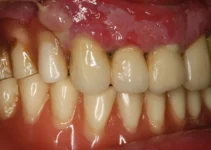Discover the benefits of using a snore stopper to improve your nightly rest and overall well-being. This device can help reduce the disruptive and unhealthy effects of snoring by maintaining clear airways during sleep. With various types available, from nasal strips to adjustable mouthpieces, learn how each snore stopper works and find the best fit for your personal needs. Embrace quieter nights and energized mornings with the right snore stopper.
Effective Snore Stopper Solutions
Snoring is a common issue that affects many people and can lead to disrupted sleep patterns for both the snorer and their partner. Fortunately, there are several effective solutions available that can help reduce or eliminate snoring. Understanding these options can make a significant difference in improving sleep quality and overall health.
In this article, we will explore some of the most popular and effective snore stopper solutions, including anti-snoring mouthpieces, nasal strips, and positional therapy devices. Each of these methods targets the root cause of snoring in different ways, offering a range of benefits and potential results.
Anti-Snoring Mouthpieces
Anti-snoring mouthpieces, also known as mandibular advancement devices (MADs), are among the most common snoring solutions. These devices work by repositioning the lower jaw slightly forward, which helps keep the airway open during sleep. Studies have shown that MADs can reduce snoring in 70-90% of users.
These mouthpieces are typically made of soft plastic and are custom-fitted for comfort. They are available both as over-the-counter products and as custom-made devices prescribed by a dentist. The custom-made options tend to be more comfortable and effective, but they also come at a higher cost.
Users of anti-snoring mouthpieces often report immediate results, making them an attractive option for those seeking quick relief from snoring. However, it is important to be aware of potential side effects, such as jaw discomfort or excessive salivation, which can occur during the initial period of use.
Nasal Strips for Snore Reduction
Nasal strips are another popular snoring solution that works by opening up the nasal passages, thus reducing nasal congestion and improving airflow. These strips are adhesive bandages placed over the bridge of the nose, and they are designed to pull the nasal passages open as you sleep.
This method is particularly effective for individuals who snore due to nasal congestion, allergies, or a deviated septum. Nasal strips provide an immediate, non-invasive solution and are available over the counter, making them a convenient choice for many people.
While nasal strips can be highly effective, especially for mild snorers, they may not address the underlying causes of more severe snoring. It is often recommended to use nasal strips in conjunction with other treatments for a more comprehensive approach to snoring reduction.
Positional Therapy Devices
Positional therapy devices are designed to help snorers modify their sleeping position, as snoring is often more pronounced when lying on one’s back. These devices range from special pillows to wearable garments that encourage side sleeping, which can significantly reduce snoring.
Studies indicate that positional therapy devices can be very effective for those who suffer from positional snoring, which is snoring that occurs primarily when lying on the back. By promoting a more favorable sleeping position, these devices help keep the airway open and reduce the vibrations that cause snoring.
Popular options in positional therapy include wedge pillows, which elevate the upper body, and positional belts or vests that prevent the wearer from rolling onto their back during sleep. These solutions are typically comfortable and non-invasive, making them a preferred choice for many snorers. In conclusion, there are several effective snore stopper solutions available that cater to different causes and severities of snoring. By exploring these options, individuals can find the most suitable solution for their needs and enjoy a better quality of sleep. For further information on improving sleep hygiene and other related topics, be sure to check out our other articles.
Lifestyle Changes to Reduce Snoring
Snoring can be a nuisance for both the person who snores and those around them. However, certain lifestyle changes can go a long way in reducing or even eliminating snoring. Adjusting your daily habits can have a significant impact on your quality of sleep and overall health. Let’s dive into specific changes that can make a difference.
Among the most effective lifestyle changes, weight management and avoiding alcohol and sedatives stand out. Implementing these changes can help you breathe more easily at night and drastically reduce snoring.
Weight Management
One of the most common causes of snoring is being overweight or obese. Excess fat, especially around the neck, can put pressure on the airways, making it more difficult to breathe and causing snoring. Losing weight can help reduce this pressure and open up the airways.
Research has shown that even a small reduction in weight can have a significant impact on snoring. For instance:
- Losing just 10% of your body weight can reduce fat deposits in the upper airway, improving your breathing.
- A balanced diet rich in fruits, vegetables, and lean proteins can support weight loss and improve overall health.
- Regular physical activity, such as walking, swimming, or yoga, can aid in weight loss and reduce snoring.
Making consistent, sustainable changes to your diet and exercise routines can not only help you manage your weight but also improve your sleep quality.
Avoiding Alcohol and Sedatives
Alcohol and sedatives can relax the muscles in your throat, which can cause your airways to collapse more easily and lead to snoring. Avoiding these substances, especially in the evening, can help keep your airways open.
Here are some tips to help you avoid alcohol and sedatives before bedtime:
- Try to stop drinking alcohol at least four hours before going to bed.
- If you need to take a sedative, consult with your healthcare provider about alternatives that do not affect your airway muscles.
- Consider switching to non-alcoholic beverages or herbal teas in the evening.
Reducing alcohol and sedative intake has not only been linked to reduced snoring but also to improved overall health and better sleep quality. These substances can hinder your ability to reach the deeper stages of sleep, which are crucial for feeling rested and rejuvenated.
Implementing these lifestyle changes can significantly reduce snoring and lead to a more peaceful night’s sleep. For more tips and detailed information on improving your health and sleep quality, explore our other articles.
Medical Interventions for Snoring
Snoring is a common issue that can significantly impact the quality of sleep for both the snorer and their partner. While lifestyle changes and home remedies may help some individuals, others may require more targeted medical interventions. Understanding the various medical options available can be the first step in finding an effective solution to alleviate snoring.
Medical interventions typically focus on addressing the underlying causes of snoring, which can range from nasal congestion to structural anomalies in the airway. By consulting with healthcare professionals, patients can receive personalized treatment plans that cater to their specific needs and conditions.
It’s crucial to recognize that persistent snoring may be indicative of a more serious condition, such as obstructive sleep apnea. Therefore, seeking medical advice is essential to ensure that any potential health risks are properly managed.
Surgical Options
For individuals with severe snoring issues that do not respond to conservative treatments, surgical options may be considered. Several surgical procedures are available, each targeting a specific part of the airway to improve airflow and reduce snoring.
One common surgical intervention is uvulopalatopharyngoplasty (UPPP), which involves removing excess tissue from the throat to widen the airway. Another option is radiofrequency tissue ablation, which uses targeted energy to reduce tissue bulk in the nasal passages or soft palate.
Each surgical option comes with its own set of risks and benefits. It is essential to consult with a qualified healthcare provider to determine the most appropriate surgical intervention based on your unique medical history and condition.
It’s also important to note that while surgery can be highly effective, it is often considered only after other treatments have failed, due to the invasive nature and potential complications associated with surgical procedures.
Consulting a Sleep Specialist
If snoring persists despite trying various treatment options, consulting a sleep specialist may be the best course of action. Sleep specialists are trained to diagnose and treat a wide range of sleep disorders, including snoring and sleep apnea. A thorough consultation typically involves a detailed medical history, a physical examination, and may include sleep studies to identify any underlying conditions that may be contributing to the snoring. These studies provide valuable insights into the patient’s sleep patterns and help tailor treatment plans more effectively.
Working with a sleep specialist can also provide access to a multidisciplinary team of healthcare providers, including ENT specialists, pulmonologists, and even dental professionals who can offer comprehensive care. This collaborative approach can significantly improve treatment outcomes.
In some cases, tailored interventions such as Continuous Positive Airway Pressure (CPAP) therapy or customized oral appliances may be recommended. These devices help keep the airway open during sleep, effectively reducing snoring and improving overall sleep quality.
If you found this article helpful, check out our other articles to expand your knowledge on sleep health and effective treatments for various sleep-related issues.
Frequently Asked Questions About Snore Stoppers
Explore the most common queries regarding the use of snore stoppers, how they can improve your sleep, and overall health.
How does a snore stopper work to improve sleep quality?
Snore stoppers are designed to reduce or eliminate snoring by facilitating better air flow through the respiratory tract, either by repositioning the jaw, opening up the nasal passages, or stabilizing the tongue. This not only improves the quality of sleep for the snorer but also for those nearby, leading to better rest and overall health.

My name is Salman Kapa, a 73-year-old expert in bone regeneration and dental implantology. With decades of experience in the field, I am dedicated to advancing our understanding of oral health and hygiene. Through my research and writing, I aim to contribute to the development of innovative solutions in dental care.




